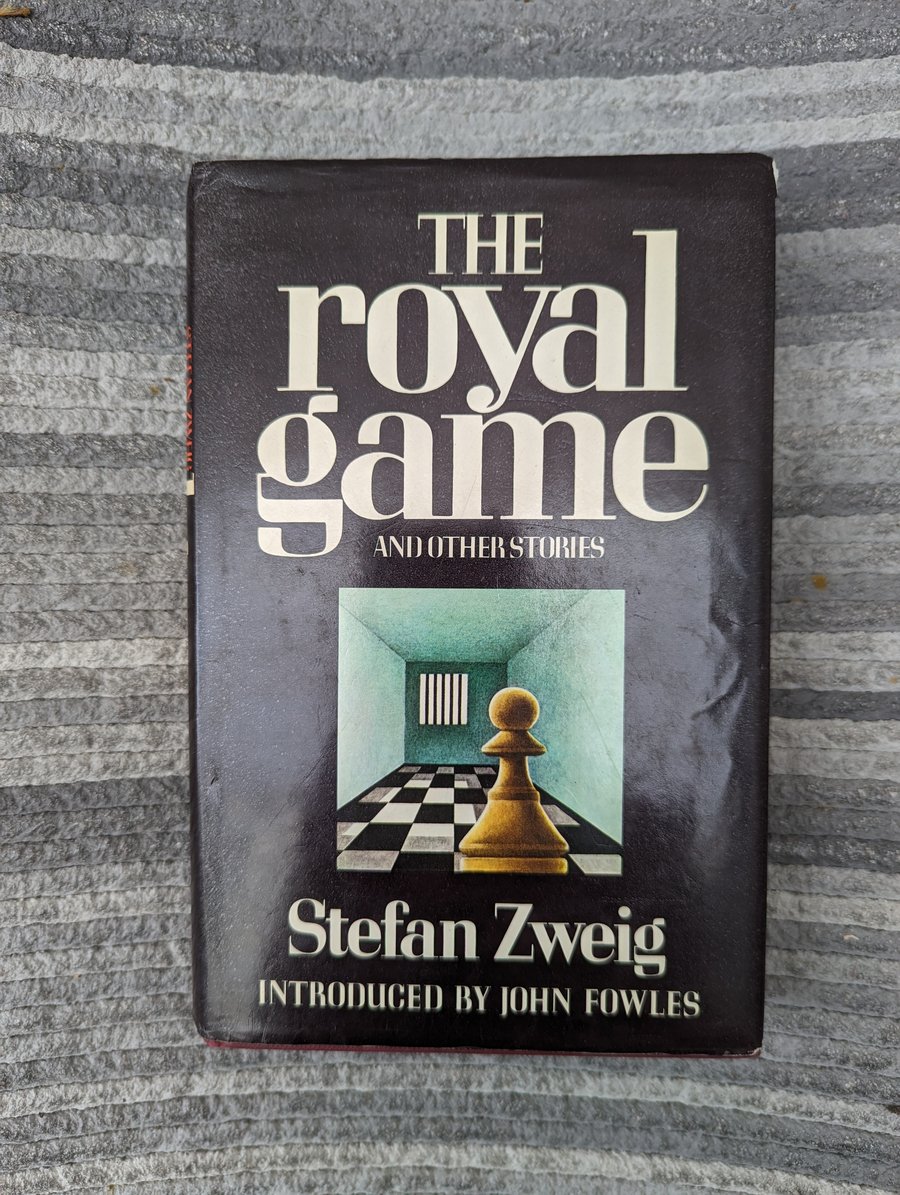At first glance, Stefan Zweig’s The Royal Game (also known as Chess Story) appears to revolve around the game of chess itself, but the deeper one delves into the novella, the more one discovers that is less about that and more about obsession, the human mind and a certain form of madness.
Prior to reading it, it is important to understand a bit of the author’s background as the story is semi-autobiographical. When Stefan Zweig was exiled and confronted with peril from the Nazi regime, he was forced to embark on voyages across the Atlantic in search of a safe place and finally decided on Brazil. Published in 1941, just before the author’s death, the novella may be an account of some of his experiences during these journeys.
The story is set on an ocean liner traveling from New York to Buenos Aires. The first-person narrator becomes intrigued when he learns that the chess world champion, Mirko Czentovic, is on board. Driven by an intense curiosity for intellectual pursuits, the narrator wants to scrutinize Mirko’s mind and behaviour, but that proves difficult until a wealthy chess enthusiast challenges the champion to a game of simultaneous chess. The passengers who declared themselves players unite in an attempt to test their skills against Mirko, but are soundly defeated. The gripping psychological suspense commences when a mysterious stranger intervenes at a crucial moment and ends their game in a stunning draw. Simply known as Dr. B, the tension escalates to a frantic pitch as his life story and how he came about to know chess so well is unravelled.
I will leave it to the reader to discover the details, but I will mention that it is a story infused with profound isolation, psychological torment and the will to survive and preserve one’s sanity. Dr. B must serve as a portrayal of Zweig himself and the despair he experienced due to an increasing sense of seclusion as he was compelled to flee further and further from his homeland. The chessboard becomes a metaphorical battleground of Europe, where opposing forces of fascism and Nazism clash with liberalism and democracy.
With its concise length of under a hundred pages, this novella can be read in a single sitting. I personally found it difficult to look away from, and not just because the writing was fluid and engaging, but also because it reaches an emotional and psychological depth that leaves the reader quivering with horror through a haunting allegory of Nazi Germany where human lives are depicted as mere wooden pawns, strategically manoeuvred and subject to the whims of an indifferent hand. Therefore, if you're looking to immerse yourself in a captivating novella without sacrificing much time, yet still yearning for an intense emotional involvement that will quicken your pulse, then I believe The Royal Game is the perfect choice. This gripping piece of fiction showcases distinctive characters and flawless storytelling that not only brings the allure of chess to life but also explores the intricacies of the human mind during challenging circumstances.
Review by Andreea Cioca
This review was written for the ACF London's EXPLORE OUR LIBRARY initiative.

